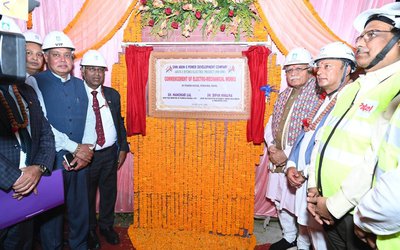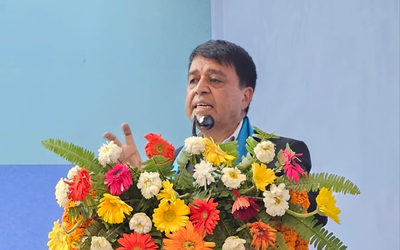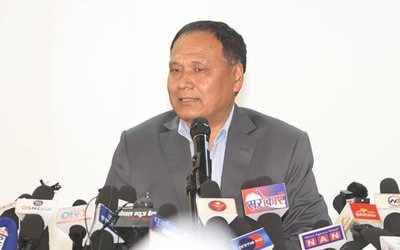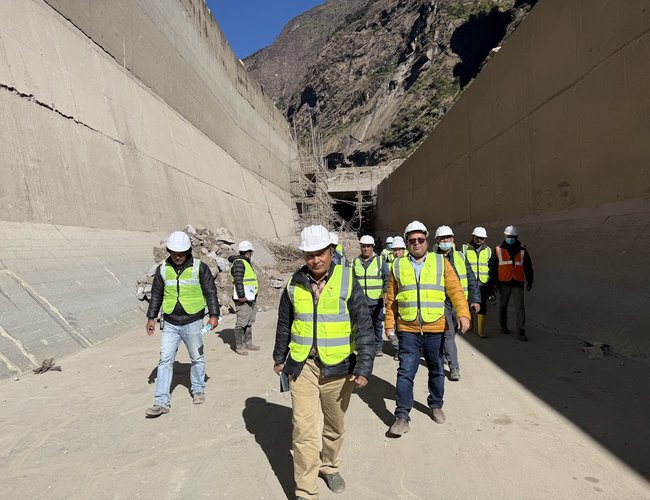
As the country is on the brink of a severe electricity crisis, there is a need for a consistent effort from Kul Man Ghising, the head of Nepal Electricity Authority (NEA). The government is working to remove him at any cost.
To prevent a potential power outage, the reconstruction of the flood-damaged 456 MW Upper Tamakosi Plant is essential. Despite facing a possible crisis, MD Ghising, who has been working tirelessly to restore power, is disregarding the conspiracy against him.
Due to a decrease in electricity generation from power plants operated by Independent Power Producers (IPPs) to one-third and an increase in demand due to lower temperatures, Nepal's electricity supply is under strain.
With the political leadership failing to negotiate with India for electricity imports during peak demand, Nepal's options to manage the peak demand of over 2300 MW are limited. The situation could worsen in February if the 456 MW Upper Tamakoshi plant is not operational. Recognizing the challenges in power generation and supply, a group of industrialists has criticized NEA for cutting electricity supply to industries during peak hours.
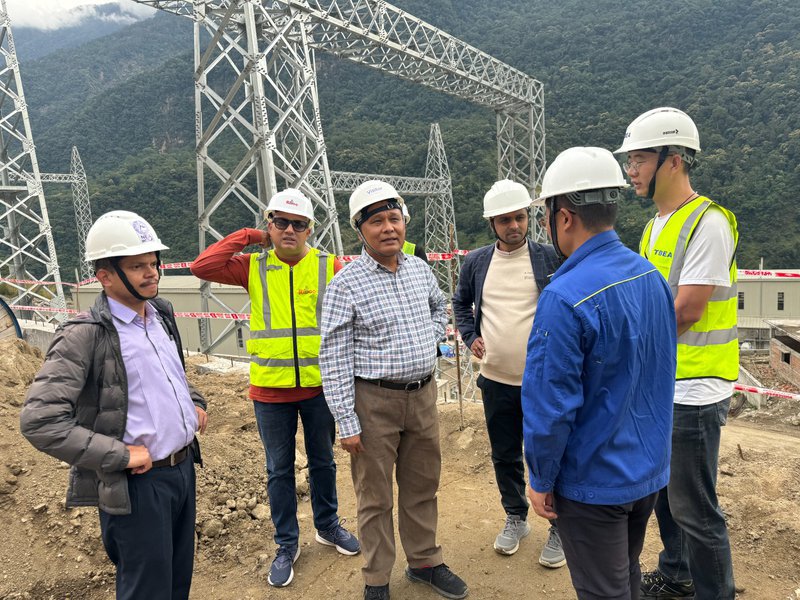
Speaking with reporters, MD Ghising said that until the 456 MW Upper Tamakoshi Cplant comes into full operation, there will be some power cuts in the evening in the industrial area. He assured that there will be no cuts for other customers.
Although a handful of industrialists are always against NEA, a large number of general consumers feel a sigh of relief with the trust and confidence in MD Ghising.
As the reconstruction work is in full swing in the 456 Upper Tamakoshi project, targeting the deadline of December 25 for partial generation and full operation by the second week of January, MD Ghising is confident that even the current partial power cuts in industrial areas will ease after December 25.
NEA has stated that until production starts from the 456 MW Upper Tamakoshi, it is project, there may be some power cuts in industrial areas during peak evening times when there is higher electricity demand.
Just last week, MD Ghising, who is also the chairperson of Upper Tamakoshi Hydropower Ltd, spent two nights inat the project site in the first week of December.
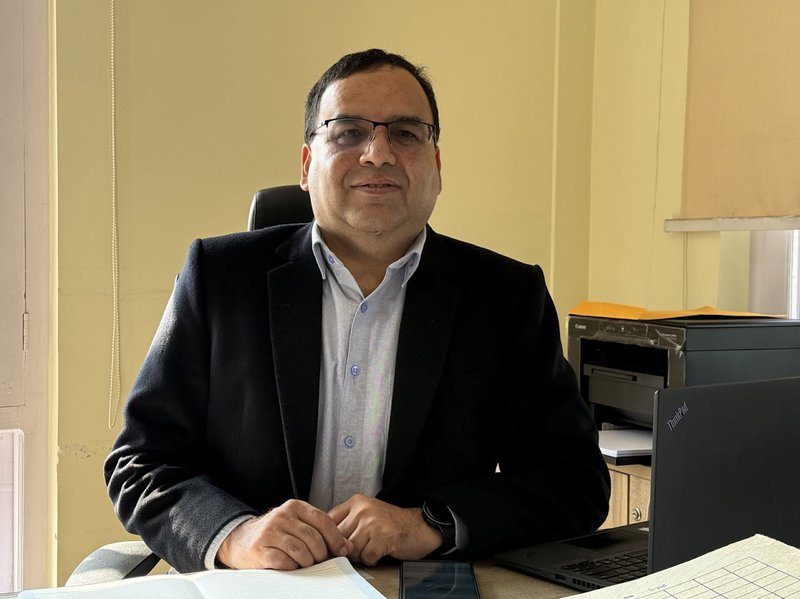
Mohan Prasad Gautam, Chief Executive Officer of Upper Tamakoshi Hydropower Ltd, visited twice and spent three days this week to accelerate the work for the partial generation of power.
With the onset of winter, when the water levels in rivers and streams decreases, the production capacity of the run-of-river (RoR) hydropower projects in the country will decrease by one-third.
Due to the cold weather, the demand for electricity will increase during this time, but the production of hydropower projects, which have the largest share in Nepal's electricity system, will decrease. In order to manage the demand and supply of electricity during winter, electricity should be imported from India
Ghising, managing director of Nepal Electricity Authority, said that there is a problem in power management during the winter peak period due to the shutdown of production from the largest 456 -megawatt hydropower project in operation this year.
Managing Director Ghising clarified that there is no need to cut power supply to customers other than industrial customers during peak hours. Due to incessant rains on October 11th and 12th, the structure of Upper Tamakoshi was damaged.
Upper Tamakoshi is being repaired to start electricity generation by December 25 and to run it during peak time within 15 days. The project can be run at full capacity for 4 hours during the peak time by storing water during low electricity demand.
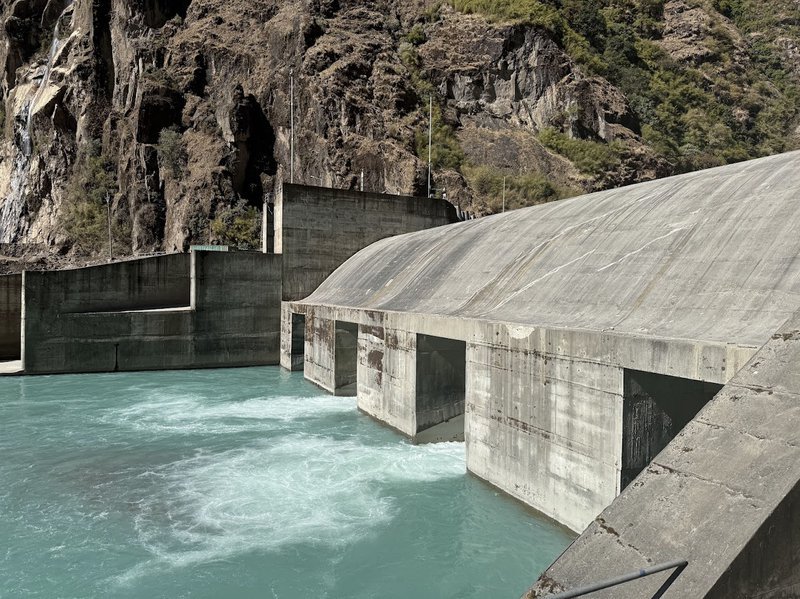
The Central Electricity Authority of India has allowed the Nepal Electricity Authority to import electricity up to 654 MW daily through the Dhalkebar-Muzaffarpur 400 kV cross-border transmission line and 54 MW through the Tanakpur-Mahendranagar 132 kV transmission line untill the next Chait 2 (March 15, 2025). However, during the peak hours from 5 pm to 9 pm, electricity cannot be imported. After that, from 3 Chait 2081 to 16 June 2082 March 16 to June 30, 2025), permission has been given to import only during solar hours, i.e., from 6 am to 6 pm.
Managing Director Ghising said that the Upper Tamakoshi is also closed, and because they cannot import electricity from India for 4 hours during peak times, the industrial sector has to reduce electricity consumption.
Ghising said, "We have not received permission to import during peak times. If the Upper Tamakoshi was in operation, more water could be imported in the afternoon, stored in the Tamakoshi reservoir, and used during peak times."
"The repair of the Upper Tamakoshi is being progressing rapidly, but until the project is completed, there is a situation where power needs to be cut during peak hours in the industrial area."
Last Friday around 3:30 AM, power supply was affected in the Bara and Parsa industrial corridors of Dhalkebar West when the wire (conductor) of the Dhalkebar-Nawalpur 132 kV transmission line snapped. The power supply has been regular since the line was repaired and put into operation on Monday afternoon.
Similarly, a circuit was damaged by a tree falling at a place called Baitadi Khochlek under the 132 kV transmission line from Chamelia in Darchula to Attaria in Kailali. The line is being repaired.Ghising, the Managing Director of the Nepal Electricity Authority (NEA), is actively overseeing multiple projects in Nepal to speed up construction efforts. His recent visits have boosted progress on the Udipur-Markichoke-Bharatpur segment of the 220 kV Marsyangdi Transmission Line Corridor Project. During visits to the Upper Tamakoshi, Tanahu Hydropower, and Marsyangdi Corridor Transmission Line projects, Ghising focused on expediting repair work and project timelines.
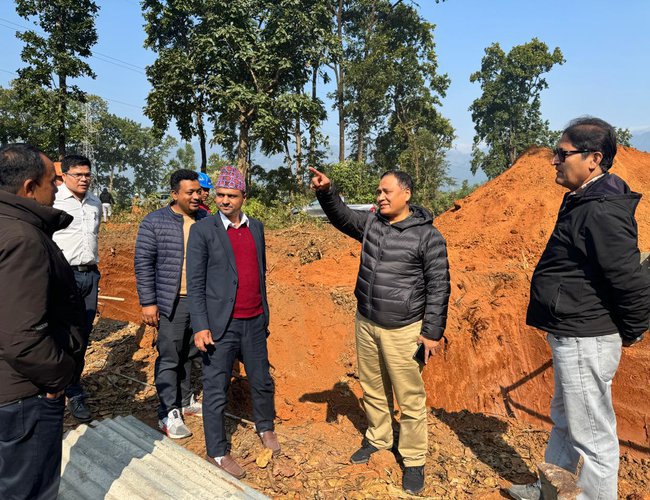
The Udipur-Markichoke-Bharatpur section of the Marsyangdi transmission line is expected to be completed by May 2025. Ghising's rigorous schedule aims to ensure uninterrupted power supply to over 98% of the population in all 77 districts. His hands-on approach helps address challenges and boost productivity on various projects, including transmission lines and hydropower initiatives. Ghising's regular site visits are crucial in overcoming delays caused by social, environmental, and contractor-related issues.
The Masryangdi Corridor 220 kV Transmission Line Project is progressing with the construction of a transmission line from Udipur Substation in Lamjung to Markichok in Ambukhairni in Tanahun, connecting to the new Bharatpur Substation in Amptari, Bharatpur Metropolitan City in Chitwan. Private sector hydropower projects along the Masryangdi, Dordi, and Trishuli rivers are being advanced through subcontracting of the Udipur-Markichoke-Bharatpur transmission line section. The goal is to complete this section by May next year to enable the transmission of power generated during the rainy season. The Nepal Electricity Authority (NEA) is providing support and monitoring the construction to ensure timely completion.
The project manager instructed the project management team to address land use, tree felling, land acquisition, and right of way issues in the forest area under the transmission line and establish a construction site.
He contacted the Chief of the Divisional Forest Office of Chitwan and Tanahun to expedite the approval process for land use and tree felling in the forest area and provide necessary support for the construction of the transmission line.
116 towers need to be built on the 40 km Udipur-Markichoke transmission line, with foundations already laid for 90 towers. Additionally, 83 towers need to be constructed on the 28 km Markichoke-Bharatpur transmission line, with foundations laid for 38 towers. Construction work is ongoing at 6 locations, and all necessary equipment and materials have been supplied.
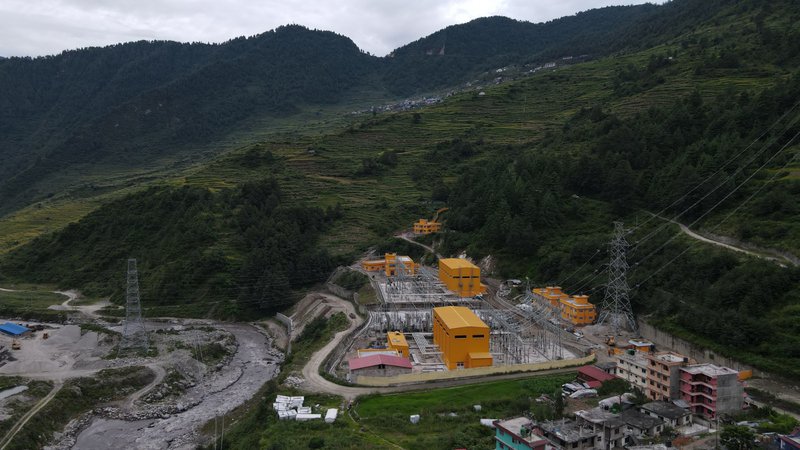
The construction of the transmission line from Udipur to New Bharatpur via Gorkha, Tanahun will require 69.69 hectares of forest land and the felling of 10,225 trees. The project manager, Narayan Regmi, mentioned that the process for land use and tree felling permissions in the forest area is underway, with tree felling already initiated in some areas. Private land for tower pads has been acquired, and the compensation process for land and structures in the right of way is in progress.
Energy entrepreneur Mohan Karki, representing private sector power producers, emphasized the importance of timely construction of the transmission line to avoid significant losses for the state. Construction has commenced with sub-contracts initiated with the consent of hydropower developers along the Masryangdi and Trishuli river corridors.
Karki stated that upon completion of the transmission line, an agreement was made to terminate the current alternative arrangement of hydropower projects in the river corridor by the end of the fiscal year 2081-82.
A 5-member monitoring committee has been established to oversee the construction of the transmission line and engage with stakeholders.
The Masryangdi Corridor Transmission Line Project involves four 220 kV substations, with Udipur and New Bharatpur substations already completed. Lampung’s Khudi substation is nearing completion, while Manang's Dharapani substation is still under construction. This project aims to transmit approximately 1,600 megawatts of electricity from Masryangdi and its tributaries to the national grid.
A delegation from the Asian Development Bank (ADB) and Nepal Electricity Authority (NEA) visited the Tanahun Hydropower Project, a 140 MW reservoir being constructed on the Seti River in Tanahun.
The team, led by Arnaud Cauchois, Country Director of ADB's Nepal Resident Mission, and Kul Man Ghising, Chairman of the board of directors of Tanahun Hydropower Ltd and Managing Director of NEA, inspected the project's progress, including the main dam, underground power plant, and tunnel construction. Discussions were held with project stakeholders to address construction challenges and ensure project timelines are met.
Shrestha, Managing Director of Tanahun Hydropower Ltd., and Shyamji Bhandari, Project Manager, provided updates on the construction progress and challenges faced. They discussed additional land acquisition issues with local authorities and requested support to resolve them.
Arnaud Cauchois, Country Director of ADB's Nepal Resident Mission, emphasized the importance of addressing current issues promptly to ensure timely and quality completion of the project. MD Ghising highlighted the project's significance inbalancing electricity demand and supply during the dry season.
The construction of power houses and transmission lines is nearing completion, but the dam construction remains a critical focus. The project is 63% complete, with an expected completion date of May 2026.
The main dam on the Seti River will be 140 meters high, with grouting work underway in Package-1. Special attention is being given to dam construction to meet project timelines.
Construction of the main dam is set to begin, with Package-1 completion at 36% by Song Da Corporation, Vietnam - Kalika Construction (Pvt.) Ltd. Nepal JV. Package-2 involves concrete lining of a 1493m tunnel, with the water level at 213m and electricity generation in an underground power station via a long penstock. Sino Hydro Corporation, China is handling Package-2 construction, including the tunnel, powerhouse, and equipment installation. Package-2 progress is at 62%, with the penstock connection nearing completion.
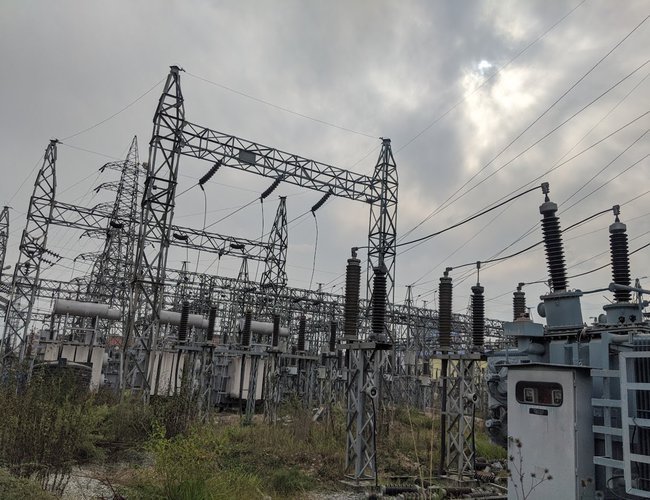
Package-3 involves K.E.C. constructing a 220 KV transmission line from Damauli to Bharatpur, with 74% progress. The social development program includes the completion of Tanahun Rural Electrification and Distribution System Strengthening Project, with two substations and a 33 kV line for local power supply.
Additionally,community development projects, including education, health, and infrastructure, have been completed in the project areas, with ongoing skill-based training for project-affected individuals.
The company's capital structure and financial management projects cost a total of US$505 million, with funding from ADB $15 million), JICA ($184 million), EIB ($85 million), and the Government of Nepal/NEA ($86 million). The 126 MW Lower Seti Hydropower Project is advancing using water from the Madi River. Sanjen Hydropower Project has started commercial production, adding 42.5 MWto the national grid.
The project is developed by Sanjen Hydroelectric Company Limited in Rasuwa district. The 111 MW Rashuwagadhi project has also started generating power. Sanjen (Upper) Hydropower Project is supplying electricity to the grid. Middle Bhotekoshi Hydropower Project is in the final stage of completion and will s
tart generating power soon. MD Ghising is working to ensure uninterrupted electricity supply amid government efforts to remove him from his post.
- TEACHERS ON STRIKE: Students' Future In Jeopardy
- Apr 25, 2025
- NEPAL-THAILAND: Joint Business Council
- Apr 13, 2025
- BIMSTEC SUMMIT: Nepal’s Stand
- Apr 11, 2025
- IME GROUP: Expands Into Paper Industry
- Mar 24, 2025
- CPN UML: Instigated By India
- Mar 23, 2025
